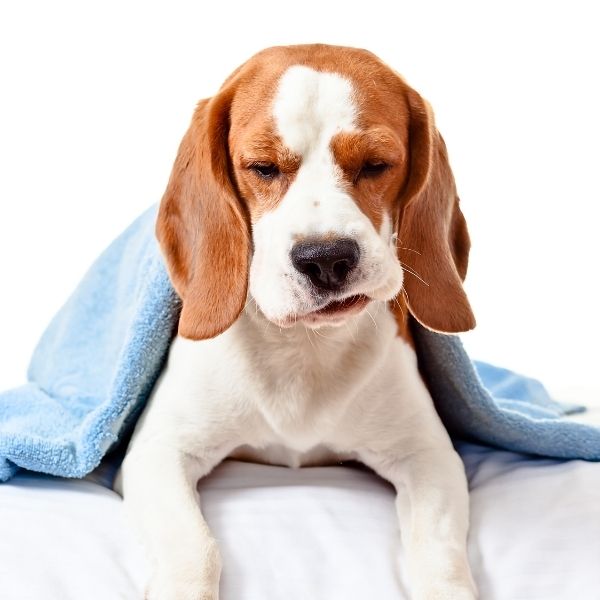

What is Kennel Cough in Dogs?
Kennel Cough in pets is a disease that requires to be carefully observed and treated in order to provide your furry pal as many healthful years as possible.
Kennel cough in dogs is a term associated with a complex of respiratory infections in dogs. Both viral and bacterial infections causes inflammation of a dogs voice box and windpipe. Similar to a chest cold in humans, it is a type of bronchitis in digs.
Here’s everything you need to know about kennel cough in dogs – how to prevent your caninefrom kennel cough, the early signs or of kennel cough that you should look out for, and what to do if you see symptoms of kennel cough in dogs.

Symptoms of Kennel Cough in Dogs
Kennel Cough can cause obvious changes in your dog’s wellbeing and behaviour. Knowing the symptoms of Kennel Cough in dogs is the first step in protecting your pet’s health. If any of these signs apply to your pet, bring your pet to your local vet for a checkup:
- Strong Cough
- Lethargy
- Loss of Apetite
- Fever
- Retching
Please Note: The information provided in this article is designed to help inform you of kennel cough. It is not meant to replace the veterinary diagnosis or treatment for kennel cough. If you have any concerns or questions about your dog’s health or possible symptoms, be sure to contact and consult with your vet right away.
The Main Causes of Kennel Cough in Dogs
To recognize and treat kennel cough in dogs, we need to understand the underlying causes of kennel cough in dogs. This can help a pet parent prevent kennel cough occurring in the first place or again.
The kennel cough in dogs can be caught in several ways:
- It can spread through aerosols in the air, directly from dog to dog
- Through germs on contaminated objects.
- It is a disease that is often spread in enclosed areas with poor air circulation, like a kennel or an animal shelter.
- It can also spread through direct contact like shared water dishes or even greeting another dog.
Diagnosing Kennel Cough in Dogs
Nobody understands your pet dog better than you do and hence it is vital that your dog be checked properly by a vet at least once a year.
Chat to your vet to find out more about the treatments for kennel cough in dogs.

Preventing Kennel Cough in Dogs
It is horrible when your dog gets ill, and seeing them suffer can be absolutely upsetting. With caution and a bit of extra care, a dog parent can ensure that dog stays protected from conditions like kennel cough.
To not to look weak or susceptible to predators, the natural survival impulses make pets hide health problems. This indicates comprehensive physical exams by a certified veterinarian are crucial to keep your family pets healthy. Usually, blood and urine tests carried out by your veterinarian are required to get the total picture of your animal’s health. These preventive checks actions will identify any health issue earlier making treatment more successful and less expensive and, more significantly, will help your pet dog live a longer, healthier life.
Preventing exposure to other infected animals is the best way to prevent kennel cough in your dog.
Parainfluenza, Bordetella and adenovirus-2 are some agents that are involved in kennel cough and there are vaccinations available.
Check with your vet if vaccinations are recommended, and if so how often, the vet needs to administer them.
Please note: If you dog has already caught the virus that causes kennel cough, then vaccinations arent useful.
Treatment for Kennel Cough in Dogs
If you suspect your dog is developing any type of cough, consult your vet straightaway. You may be advised to simply let kennel cough run its course in some situations and do the following:
- Isolate all dogs with kennel cough from other dogs.
- Give relief for irritated breathing passages using a humidifier, vaporizer or steam from a shower can.
- Keep away cigarette smoke or other noxious, irritating fumes from your dog.
- In some cases, you can give a prescribed medication such as a cough suppressant or antimicrobial.
- Replace the dog collar with a harness until the coughing subsides while your dog being walked.
- Ensure your pet is eating, drinking and in a stress-free environment.
Contact your vet to learn more about how to treat kennel cough in dogs.


